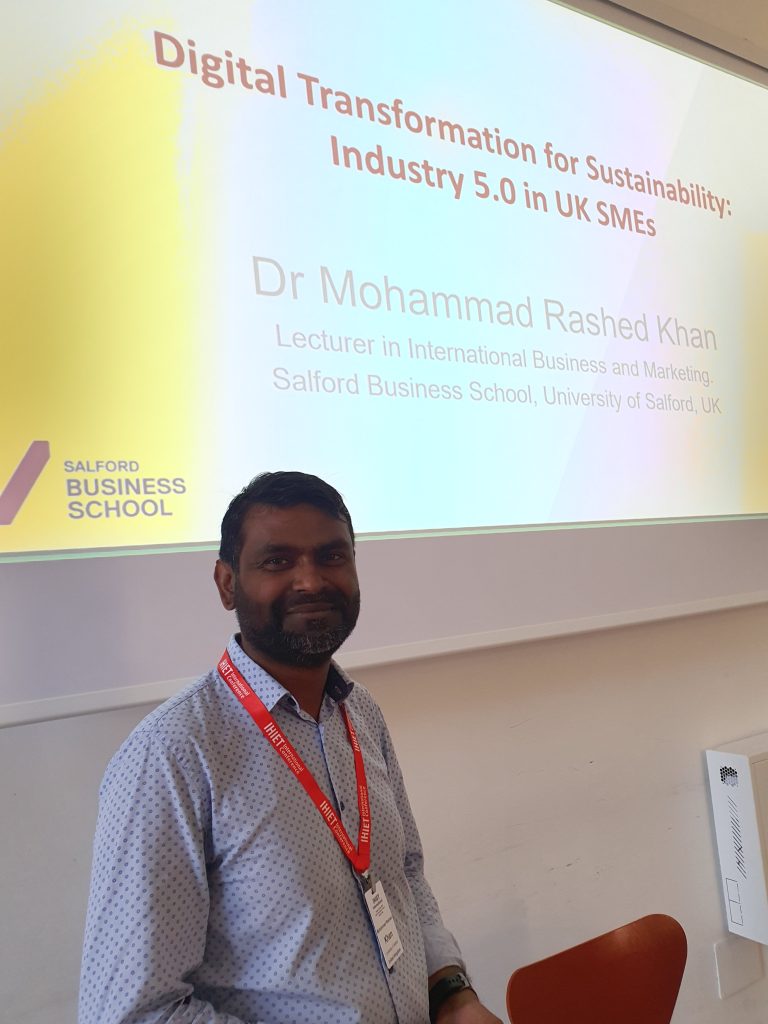Salford Business School’s Lecturer in International Business and Marketing, Dr Rashed Khan, was recently invited to present his research proposal at the 12th International Conference on Human Interaction and Emerging Technologies (IHIET) 2024.
Held at Luav University of Venice in Italy, the conference centred on a range of topical areas including, human-computer interaction, artificial intelligence (AI), augmented and virtual reality (AR and VR), wearable technology and emerging/disruptive technologies in business applications, healthcare and sustainable development.
About Rashed’s research
Rashed’s research will explore how UK SMEs (small and medium enterprises) can capitalise on the use of technologies and the principles of Industry 5.0—a new phase in industrial development focused on human-machine collaboration and sustainability—to drive digital transformation. Industry 5.0 integrates advanced technologies such as AI, the Internet of Things (IoT), and collaborative robots (cobots), to create more efficient and sustainable production processes.
SMEs are vital to the UK economy, comprising over 99% of all businesses, and playing a vital role in employment and economic growth. As the business landscape rapidly evolves with digital technologies, these enterprises must undergo digital transformation to stay competitive.
By embracing innovation, adopting new technologies and driving digital transformation, SMEs can enhance their operational efficiency, reduce environmental impact, and meet the growing demand for sustainable business practices.
As such, Rashed’s study examines the challenges SMEs face in adopting these technologies, aiming to provide a strategic framework to help them achieve digital transformation and sustainability goals.
The core objectives of Rashed’s research are:
- To investigate how technologies like AI, IoT and cobots can be utilised by SMEs to optimise their operations, reduce waste and minimise energy consumption
- To understand the unique challenges faced by SMEs in adopting these technologies, including financial constraints, skill gaps and regulatory compliance issues
- To evaluate how the adoption of Industry 5.0 technologies can help SMEs meet their ESG (environmental, social and governance) goals, enhance their environmental performance and contribute to broader societal benefits
- To propose a practical roadmap for UK SMEs to successfully implement digital transformation strategies that align with sustainability objectives and support long-term growth
On his research presentation, Rashed commented: “SMEs continue to represent the vast majority of businesses in the UK and will play an essential role in the country’s future economic stability, making innovation critical. Enhancing efficiency, achieving ESG goals and accelerating digital transformation will be a fundamental part of this and my research will highlight the opportunities available through technology to support SMEs on this journey.”

